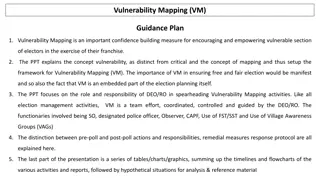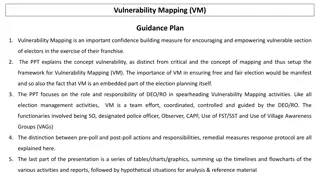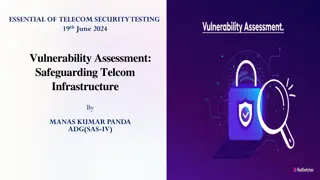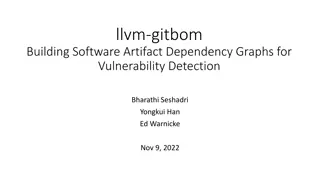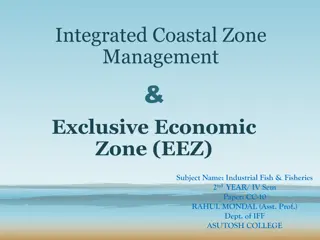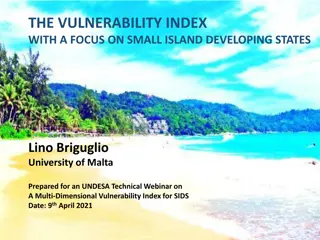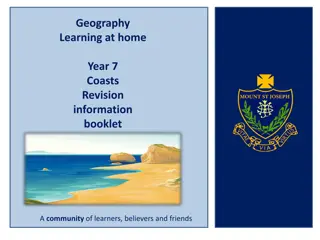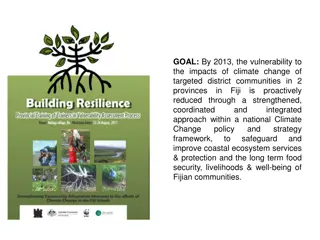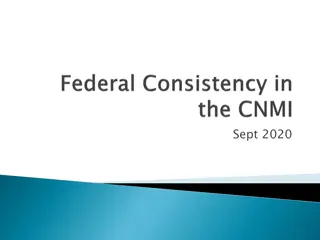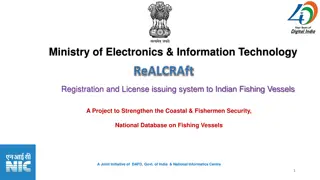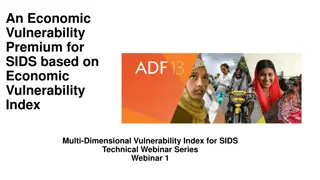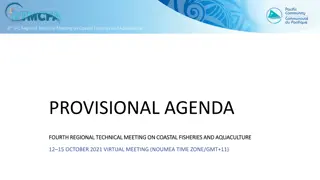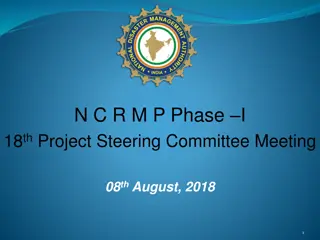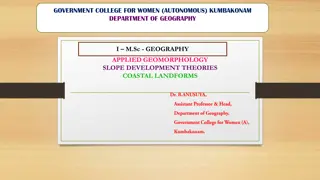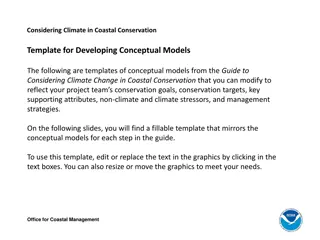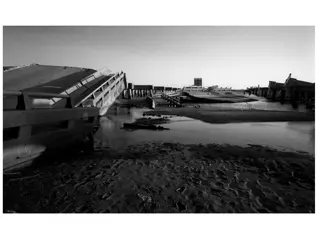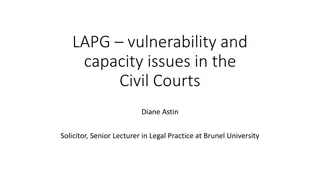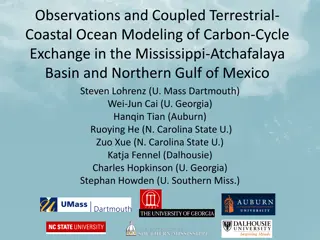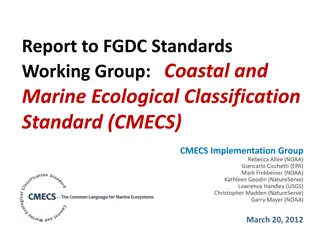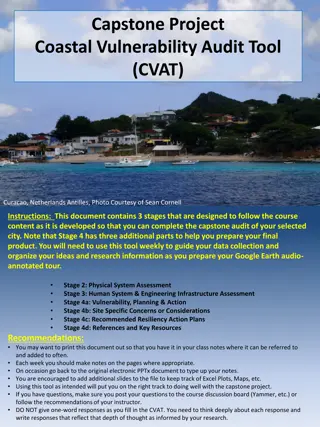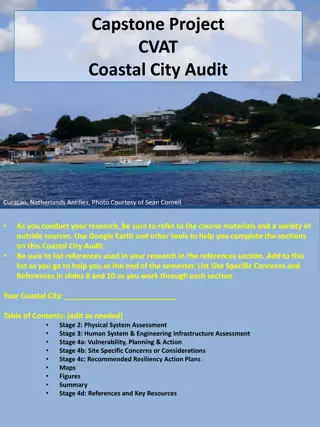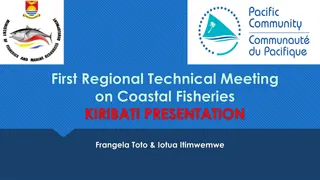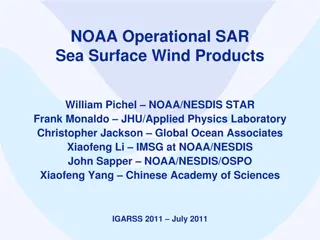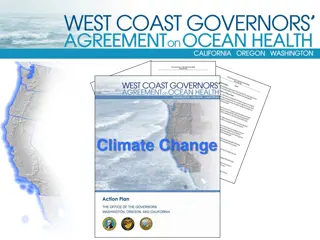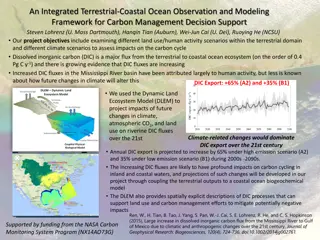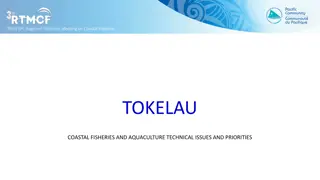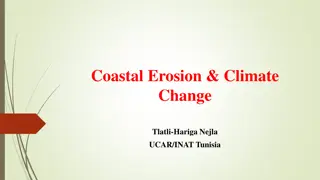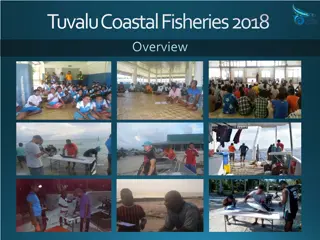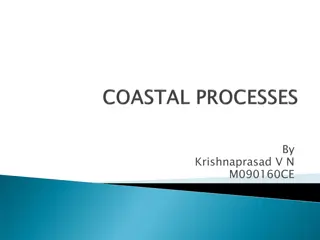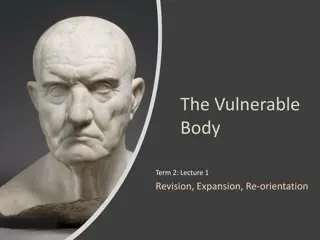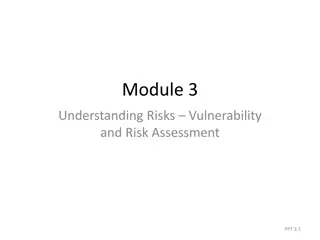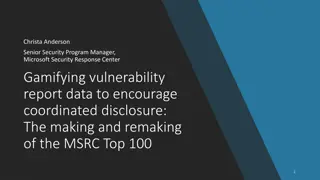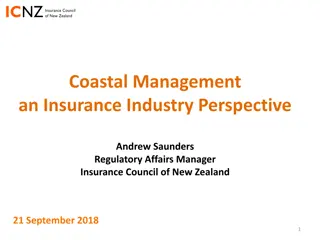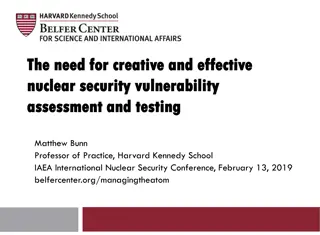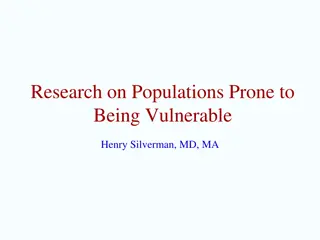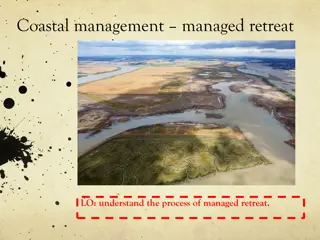Understanding Vulnerability: Meaning, Types, and Factors affecting Vulnerability
This article explores the concept of vulnerability, including its meaning, types (physical and social), and factors that contribute to vulnerability. It discusses the impact of hazardous events on communities, infrastructure, and the environment, and highlights the importance of awareness and prepar
26 views • 31 slides
Understanding Risk Management in Environmental Geography and Disaster Management
Risk management in environmental geography and disaster management involves assessing the potential losses from hazards, evaluating vulnerability and exposure, and implementing strategies to mitigate risks. It includes calculating risk, dealing with risk through acceptance, avoidance, reduction, or
1 views • 10 slides
Comprehensive Guide to Vulnerability Mapping in Election Planning
Explore the significance of Vulnerability Mapping (VM) in empowering vulnerable voters, understand the concept, role of DEO/RO, and the objective of identifying and addressing voter vulnerability. The presentation emphasizes pre-poll and post-poll actions, remedial measures, and timelines, providing
3 views • 42 slides
Coastal Monitoring and Lessons Learned in Southwest England
Southwest England's coastal monitoring efforts, including the South West Coastal Monitoring program and lessons learned from the destruction of Hallsands in 1917 due to lack of understanding of coastal processes. The monitoring involves data collection on beach profiles, bathymetry, wave patterns, a
4 views • 15 slides
Coastal Path Promotion Poster Design for Wales
Design promotional posters for the Coastal Path in Wales to encourage visitors to explore the 870-mile long coastal walking path accessible to walkers, cyclists, families, limited mobility individuals, and horse riders. Discuss the essence of marketing, its impact, target audience, and advantages an
4 views • 28 slides
Vulnerability Mapping (VM).Guidance Plan
Vulnerability Mapping (VM) is crucial in empowering vulnerable voters by identifying and addressing potential threats to their exercise of franchise. This guide explains the concept of vulnerability mapping, its role in ensuring free and fair elections, and the responsibilities of election officials
2 views • 42 slides
Understanding Telecom Security Testing: Vulnerability Assessment & Remediation
Telecom security testing is crucial for safeguarding infrastructure against hacks. Learn about vulnerability assessment, common weaknesses, types of vulnerabilities, severity scoring, and automated tools like Nessus and Nexpose. Explore network, web application, and host-based vulnerability testing
0 views • 18 slides
Leveraging Artifact Dependency Graphs for Software Vulnerability Detection
Explore how LLVM-GitBOM utilizes artifact dependency graphs to detect vulnerabilities in software dependencies. The presentation covers the overview of GitBOM, CVE detection, supply chain vulnerabilities, and the importance of precise build tools in vulnerability scanning. Learn about utilizing gito
0 views • 34 slides
Integrated Coastal Zone Management & Exclusive Economic Zone (EEZ) - Sustainable Coastal Management
The coastal zone is a vital area where land and sea interact, presenting dynamic challenges and opportunities. Integrated Coastal Zone Management (ICZM) is a science-based approach to managing coastal areas, aiming for sustainability by balancing environmental, economic, and human activities. ICZM,
0 views • 10 slides
Understanding the Vulnerability Index for Small Island Developing States
This article discusses the concept of vulnerability in the context of countries, focusing on Small Island Developing States (SIDS). It explores the differences between vulnerability and poverty, the history of vulnerability index development from SIDS to Least Developed Countries (LDCs), and critiqu
8 views • 44 slides
Understanding Coastal Processes and Erosion
Coasts are dynamic environments shaped by a variety of processes such as erosion and transportation. Waves influence the size and energy of waves, while erosion is caused by processes like corrasion and solution. Coastal transportation involves suspension, solution, and saltation. The impact of mari
6 views • 18 slides
Enhancing Climate Resilience in Fiji Through Ecosystem Protection and Community Engagement
The project aims to reduce vulnerability to climate change impacts in targeted Fijian communities by strengthening coastal ecosystem services, protection, and food security. Key components include mangrove protection, community-based adaptation, and policy integration within national frameworks to e
0 views • 8 slides
Understanding Federal Consistency in Coastal Zone Management
This presentation serves as an introduction to Federal Consistency in the context of Coastal Zone Management, emphasizing the importance of compliance with enforceable policies outlined in the Coastal Zone Management Act. It highlights the role of the Division of Coastal Resources Management (DCRM)
1 views • 13 slides
Modernizing Indian Fishing Vessel Registration & Licensing System for Coastal Security
A government initiative, the Registration and Licensing of Fishing Craft (ReALCRAFT) project aims to enhance coastal security by registering Indian fishing vessels under a national database. The system issues Registration Certificates and Fishing License Certificates online, ensuring unique identifi
0 views • 31 slides
Economic Vulnerability Premium for SIDS - Webinar Insights
Presentation outlines applying Economic Vulnerability Index (EVI) for an Economic Vulnerability Premium in Small Island Developing States (SIDS) during ADF 13 cycle. Details ADF grants availability, grant allocation framework, performance-based allocation system, and modifications needed for SIDS.
0 views • 14 slides
4th SPC Regional Technical Meeting on Coastal Fisheries and Aquaculture - Provisional Agenda
The 4th SPC Regional Technical Meeting on Coastal Fisheries and Aquaculture is set to take place on 12-15 October 2021 in a virtual format. The agenda includes sessions on integrating e-data systems into coastal fisheries, enhancing capacity for fisheries management, and community-based fisheries di
0 views • 9 slides
National Cyclone Risk Mitigation Project Phase I Summary
The National Cyclone Risk Mitigation Project (NCRMP) aims to reduce cyclone risk and vulnerability in coastal areas by developing an Early Warning Dissemination System, constructing cyclone risk mitigation infrastructure, and building capacity in coastal communities. Phase I in Andhra Pradesh and Od
0 views • 31 slides
Understanding Coastal Landforms: Formation and Characteristics
Coastal landforms are features shaped by erosion and sedimentation processes along coastlines. These landforms, including headlands, cliffs, bays, spits, salt marshes, and beaches, are predominantly influenced by factors such as wave action, longshore currents, tides, and climatic elements like wind
0 views • 35 slides
Coastal Conservation Strategies for Climate Resilience
Develop conceptual models for coastal conservation goals, targets, and management strategies in the context of climate change. Templates provided for reducing coastal flooding using natural areas, addressing non-climate and climate stressors, and implementing effective management strategies to enhan
3 views • 6 slides
Louisiana Coastal Flooding Litigation Overview
The content discusses various aspects related to the Katrina Canal breaches consolidated litigation in Louisiana, focusing on the legal implications, failures in flood control measures, geology of coastal Louisiana, coastal elevations, and the impact of canal breaches on flooding in the region. It a
1 views • 30 slides
Understanding Vulnerability and Capacity Issues in Civil Courts
Exploring vulnerability and capacity issues in civil courts, this content delves into the importance of addressing vulnerabilities of parties and witnesses for ensuring fair participation and quality evidence in legal proceedings. Topics covered include factors contributing to vulnerability, the rol
0 views • 21 slides
Coupled Terrestrial-Coastal Modeling of Carbon Exchange in the Gulf of Mexico
Explore the interactions between terrestrial and coastal systems in the Mississippi-Atchafalaya Basin and Northern Gulf of Mexico through coupled terrestrial-coastal ocean modeling. The study focuses on carbon dynamics, uncertainties in coastal carbon budgets, and the NASA IDS project's approach. Fu
3 views • 26 slides
Coastal and Marine Ecological Classification Standard (CMECS) Implementation Progress
The report highlights the development, timeline, objectives, and importance of the Coastal and Marine Ecological Classification Standard (CMECS) along with its implementation progress. It discusses the need for a national standard for classifying coastal and marine habitats, the objectives of CMECS,
1 views • 38 slides
Coastal Vulnerability Audit Tool (CVAT) for Curacao, Netherlands Antilles
This document outlines the stages of the Coastal Vulnerability Audit Tool (CVAT) for assessing the physical system and human system & engineering infrastructure of Curacao, Netherlands Antilles. It covers key aspects such as coastal setting, climatic and tectonic settings, topographic profile, coast
0 views • 10 slides
Coastal Vulnerability Assessment of Curacao, Netherlands Antilles
Conduct a comprehensive Coastal Vulnerability Audit of Curacao, Netherlands Antilles, using the Coastal Vulnerability Audit Tool (CVAT) to assess physical, human, and engineering infrastructure systems, as well as vulnerability, planning, and resiliency action plans. Consider factors such as climati
0 views • 10 slides
Enhancing Coastal Fisheries Data Collection in Kiribati: Challenges and Innovations
Presentation at the First Regional Technical Meeting on Coastal Fisheries in Kiribati covered current data collection methods, challenges faced including communication delays and lack of fisheries officers, and proposed innovations such as a smartphone app for e-reporting and using VHF radio for ema
0 views • 9 slides
NOAA SAR High-Resolution Coastal Winds Overview
NOAA's Operational SAR Sea Surface Wind Products provide detailed information on wind patterns derived from SAR images. The system aims to implement high-resolution wind production, capable of deriving winds from various SAR satellites. The operational goals include compatibility with international
0 views • 28 slides
Coastal Climate Change Impacts and Adaptation Strategies Overview
This overview delves into the impacts of climate change on coastal areas, including shoreline changes, coastal hazards, and coastal geomorphic systems. It highlights the physical forcing mechanisms, such as sea level rise and increased storm activity, affecting these regions. The assessment emphasiz
0 views • 14 slides
Integrated Terrestrial-Coastal Ocean Framework for Carbon Management
An advanced framework integrating terrestrial and coastal ocean observations and modeling is developed to support carbon management decisions. The study focuses on assessing the impacts of land use, human activities, and climate scenarios on the carbon cycle, particularly dissolved inorganic carbon
0 views • 5 slides
Coastal Fisheries and Aquaculture Priorities in Tokelau
This document discusses the technical issues and priorities for coastal fisheries and aquaculture in Tokelau, a group of low-lying coral atolls heavily dependent on coastal resources. It highlights the need for assessing fisheries resources, supporting sustainability, and exploring aquaculture poten
0 views • 6 slides
Understanding Coastal Erosion and Climate Change Impact in Tunisia
Coastal erosion and climate change pose significant threats to Tunisia's coastal areas, affecting ecosystems, economy, and human livelihoods. Climate change exacerbates erosion through rising sea levels, extreme weather events, and human activities. Understanding these phenomena is crucial for susta
0 views • 18 slides
Tuvalu Coastal Fisheries 2018 Overview and Current Activities
Tuvalu Coastal Fisheries Department aims to maximize social and economic returns by sustainably managing marine resources. Their priorities include supporting livelihoods through inshore fisheries and generating revenue from oceanic fisheries. The Coastal Division focuses on outer island and Funafut
0 views • 8 slides
Understanding Coastal Processes: Erosion, Deposition, and Human Impact
Coastal processes involve a complex interplay of erosion, deposition, and human activities that impact the dynamic equilibrium of coastlines. Energy from tides, waves, wind, and currents shape the land-water interface, while human use of coasts introduces conflicts leading to unstable systems. Sedim
0 views • 44 slides
Reimagining Vulnerability: Rethinking the Body and Human Dignity
The notion of vulnerability is explored within the framework of the human body and dignity, challenging traditional concepts of autonomy and independence. Scholars like Martha Nussbaum and Fineman provide insights on the universal nature of vulnerability and advocate for a shift towards recognizing
0 views • 21 slides
Understanding Risks and Vulnerability in Risk Assessment
This module focuses on understanding risks, vulnerability, and conducting risk assessments in disaster risk management. It covers terminologies such as threats, hazards, vulnerability, and exposure, essential for prioritizing risks and initiating risk reduction measures.
0 views • 24 slides
Gamifying Vulnerability Reporting for Coordinated Disclosure at Microsoft Security Response Center
Christa Anderson, a Senior Security Program Manager at Microsoft's Security Response Center, discusses the importance of gamifying vulnerability report data to encourage coordinated disclosure. The MSRC Top 100, announced at Black Hat USA, plays a crucial role in the public credit strategy by recogn
0 views • 13 slides
Coastal Management and Insurance Industry in New Zealand
Coastal areas in New Zealand face risks from flooding, storm surges, and sea-level rise, making insurance crucial for managing property losses. Insurers respond to coastal risks by adjusting premiums, excesses, and coverage. Long-term coastal planning involves managing risks through strategic buildi
0 views • 6 slides
Enhancing Nuclear Security Through Creative Vulnerability Assessment
Creative and effective vulnerability assessment and testing are essential in nuclear security to identify weaknesses and improve defense systems against intelligent adversaries. The need for in-depth assessment and realistic testing is emphasized to uncover vulnerabilities that adversaries may explo
0 views • 8 slides
Understanding Vulnerability in Research Populations
Vulnerability in research populations refers to being exposed to harm without the ability to protect oneself adequately. Factors contributing to vulnerability include intrinsic limitations like decision-making capacity and situational influences such as political or economic circumstances. Different
0 views • 22 slides
Understanding Managed Retreat in Coastal Management: Wallasea Island Case Study
Wallasea Island in Essex, England employed managed retreat as a coastal management strategy, removing the sea wall to allow natural coastal processes. This decision, despite impacting local agriculture, led to the creation of salt marshes, serving as a cost-effective and environmentally beneficial s
0 views • 7 slides


